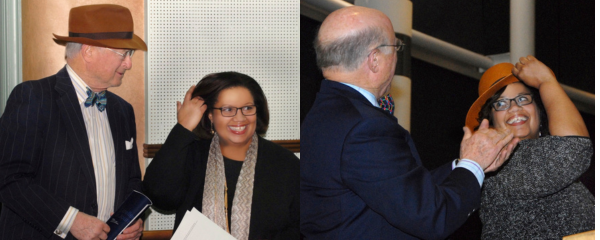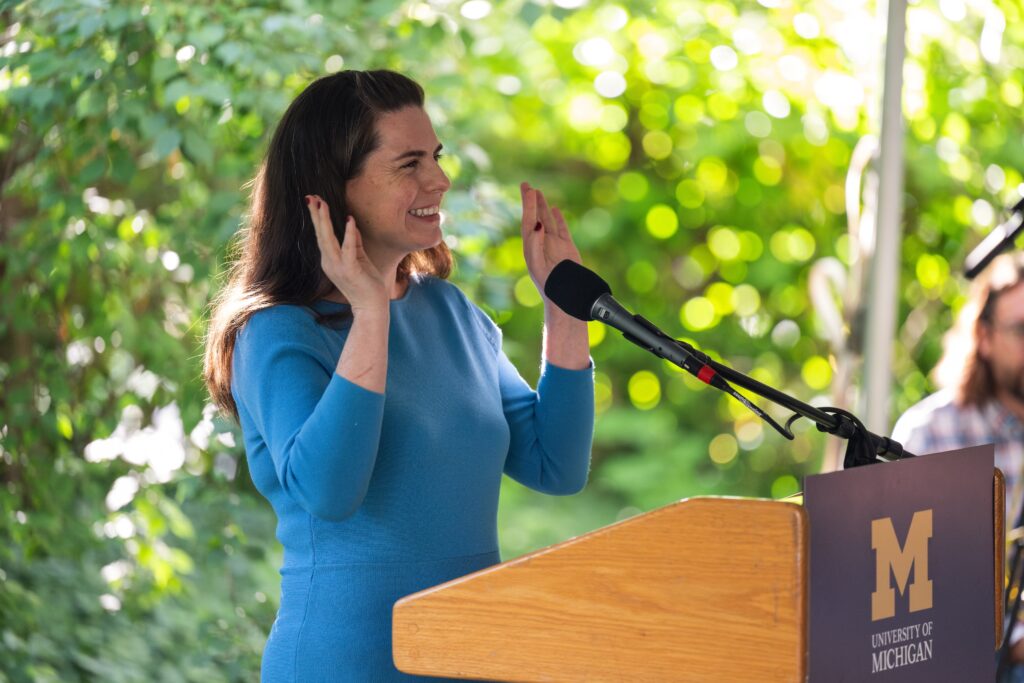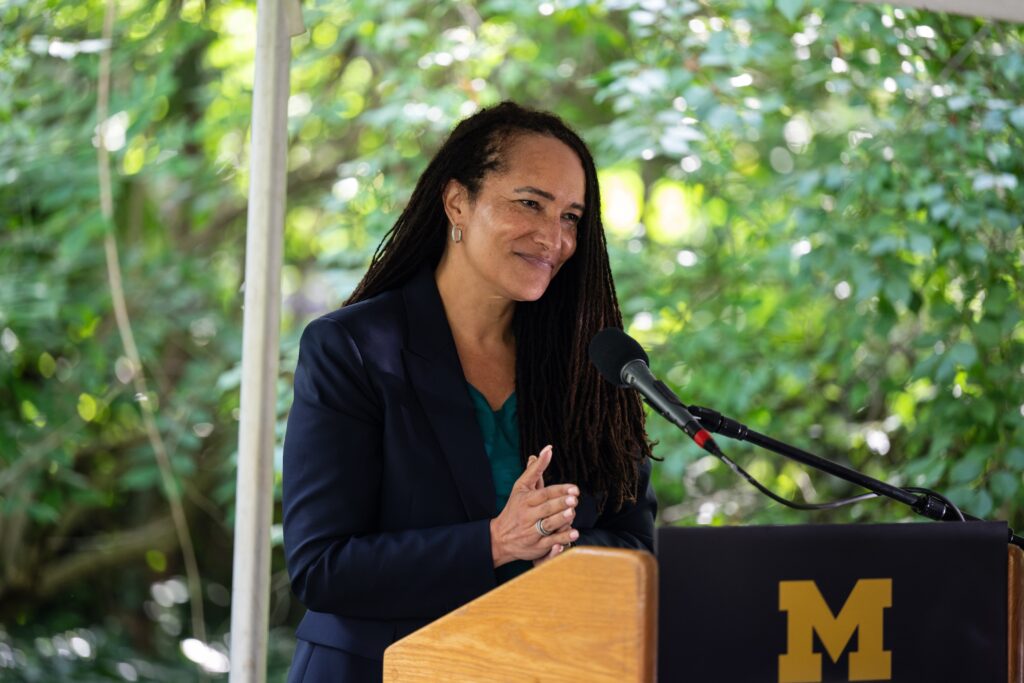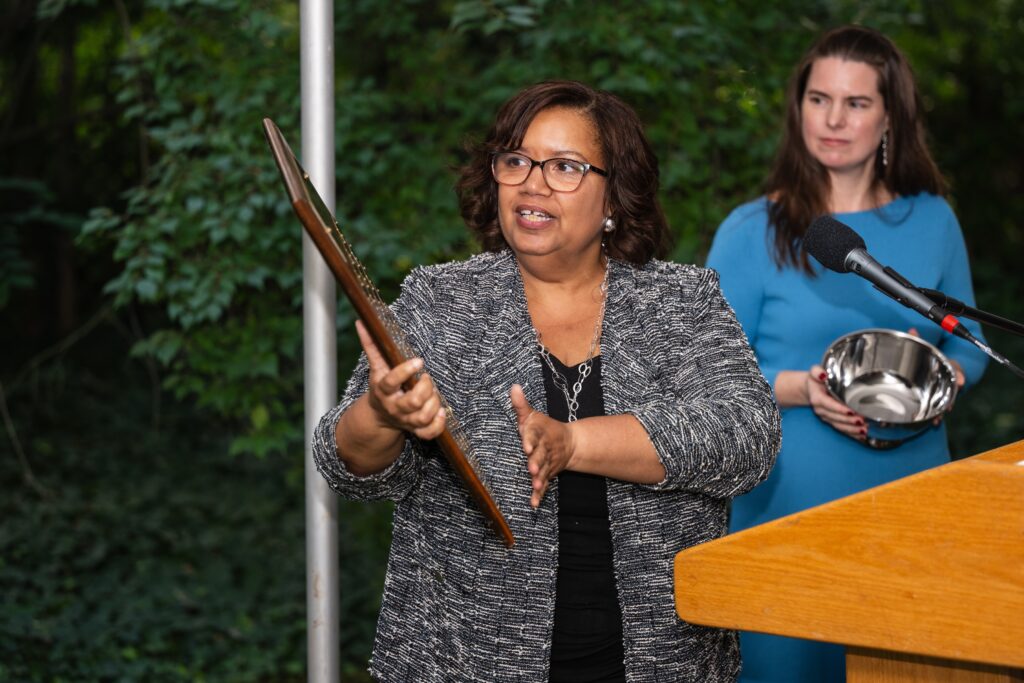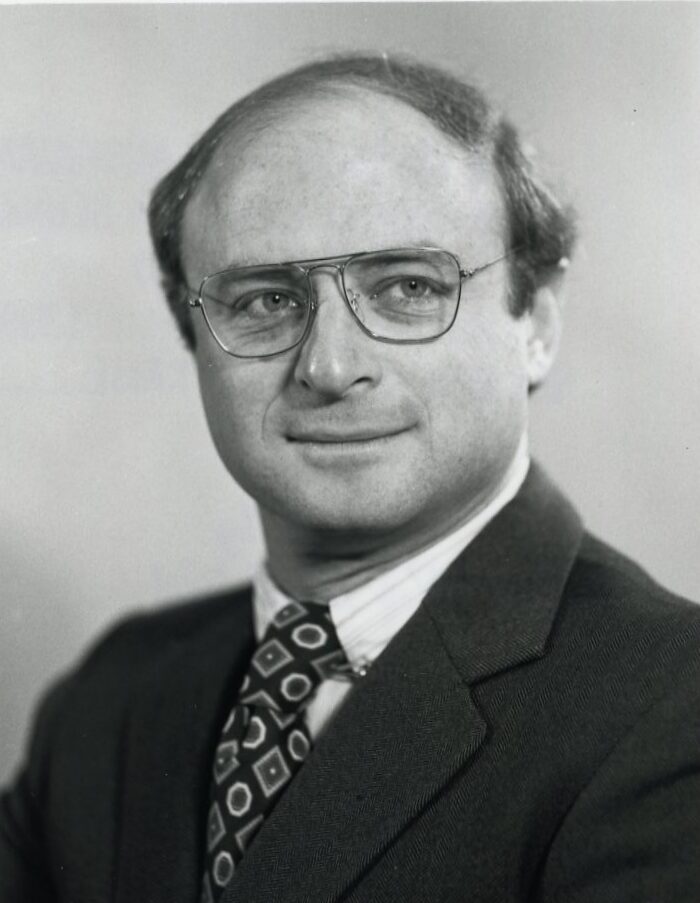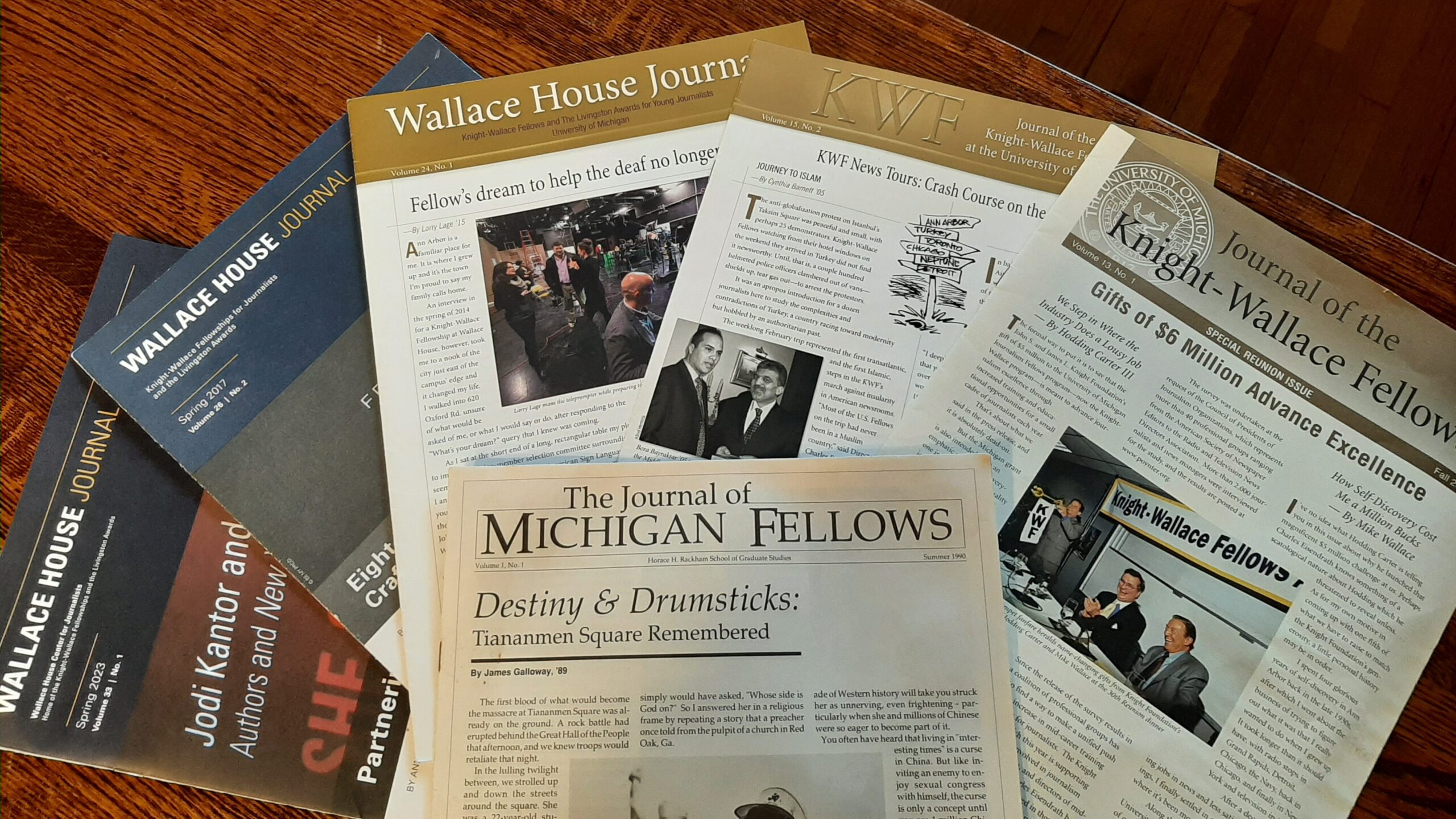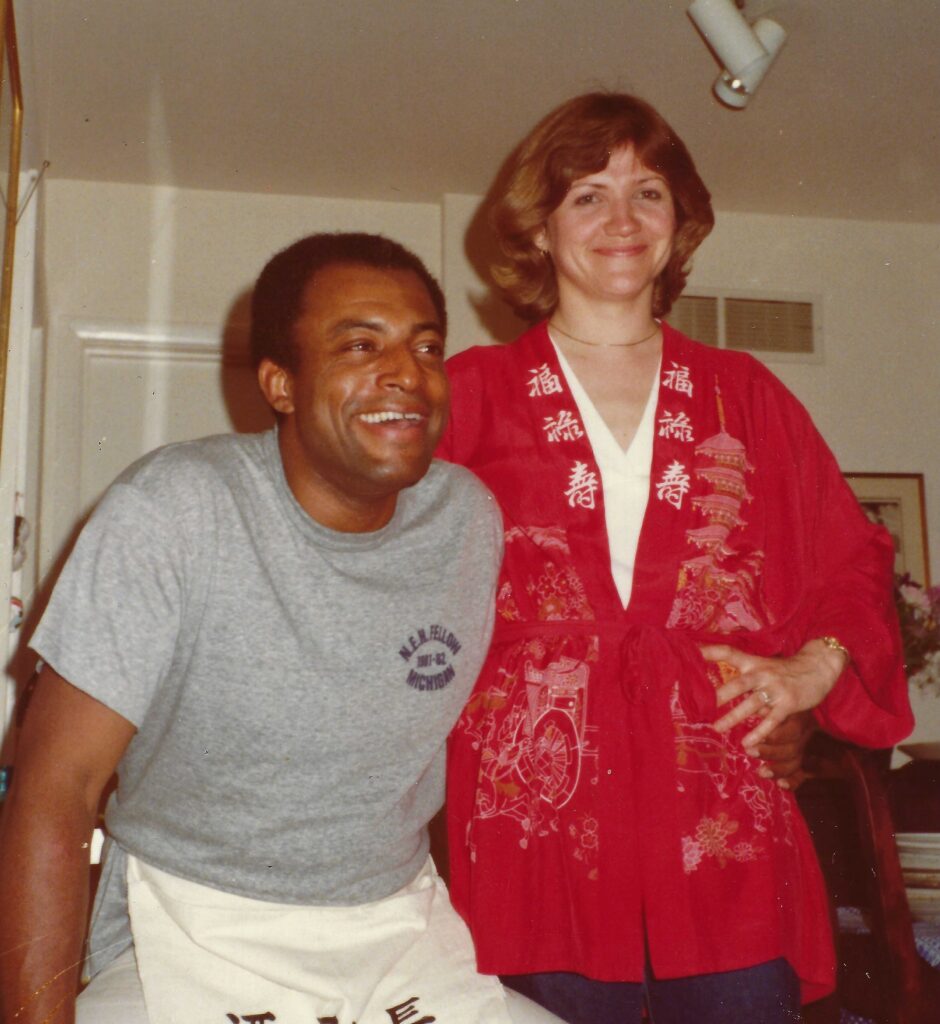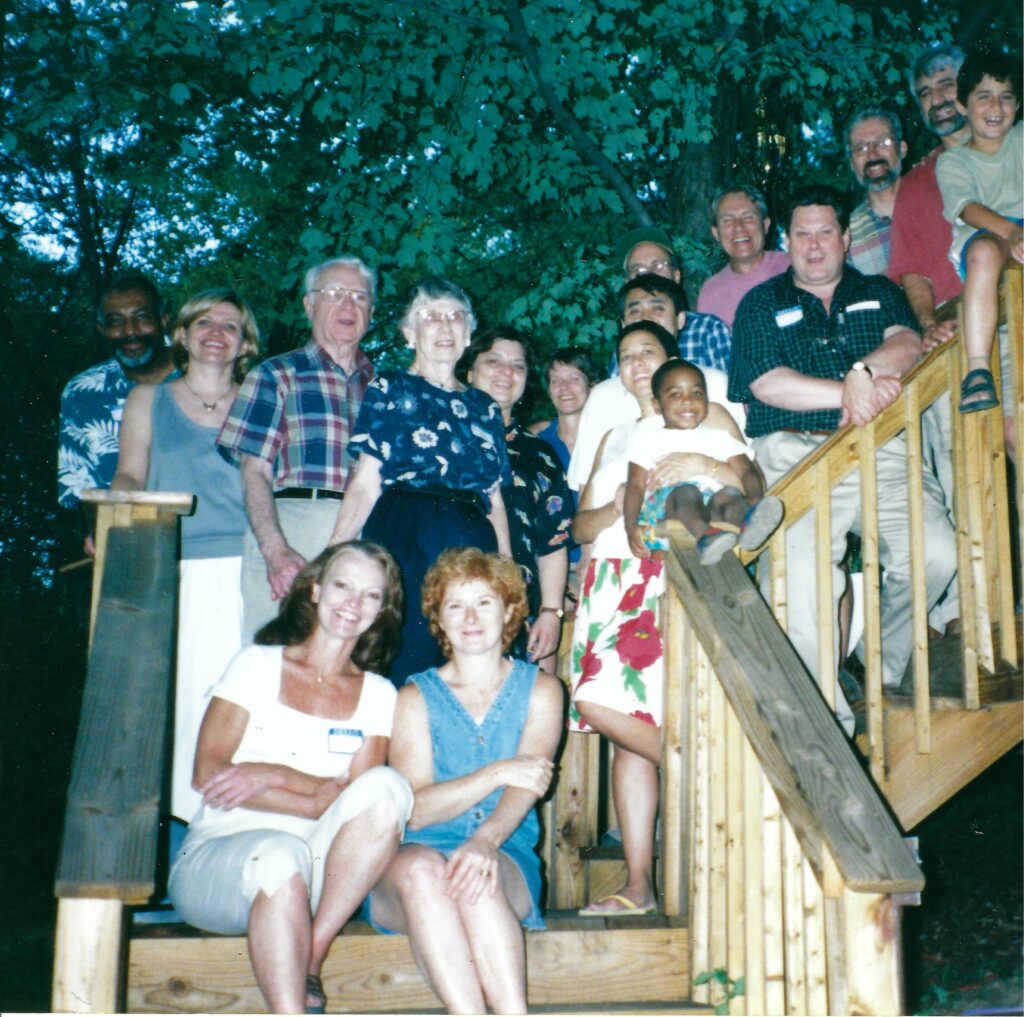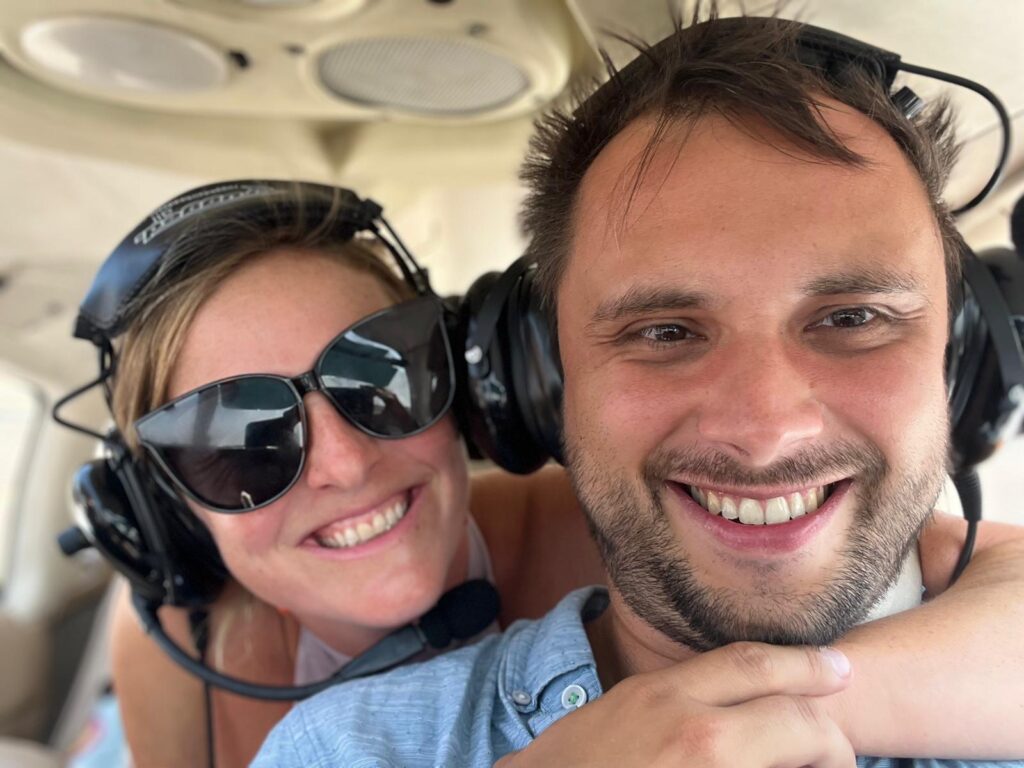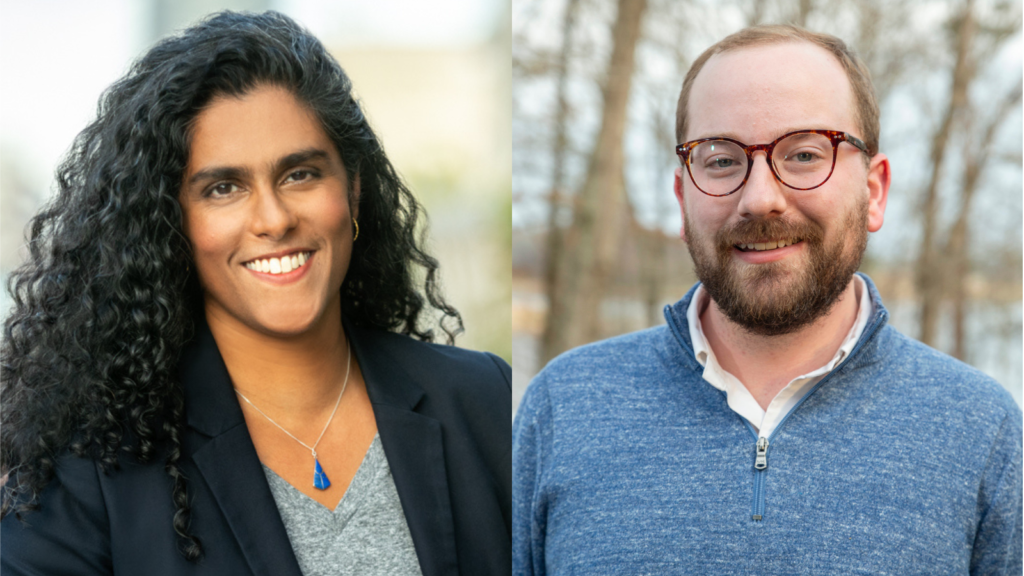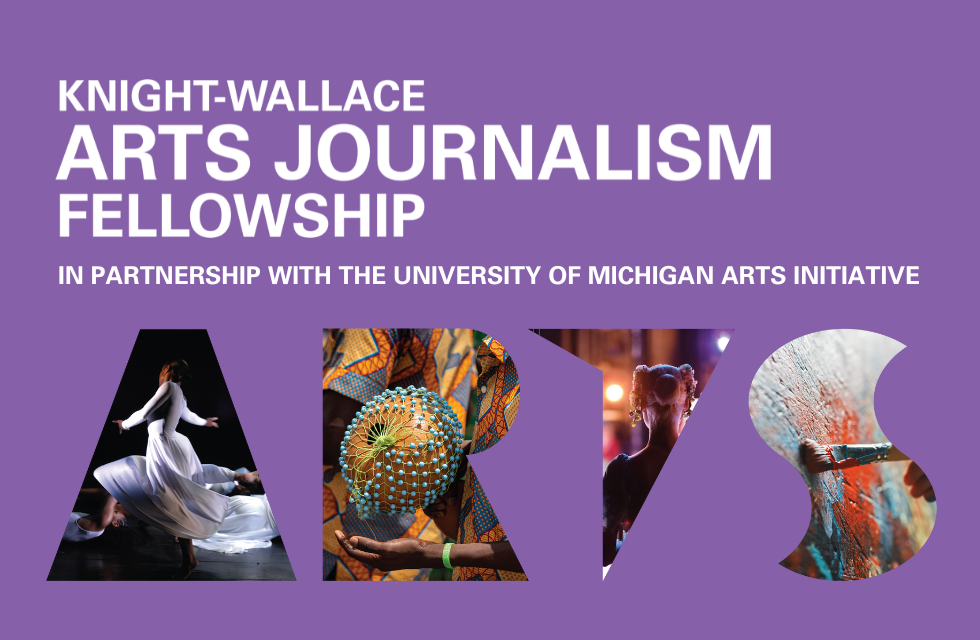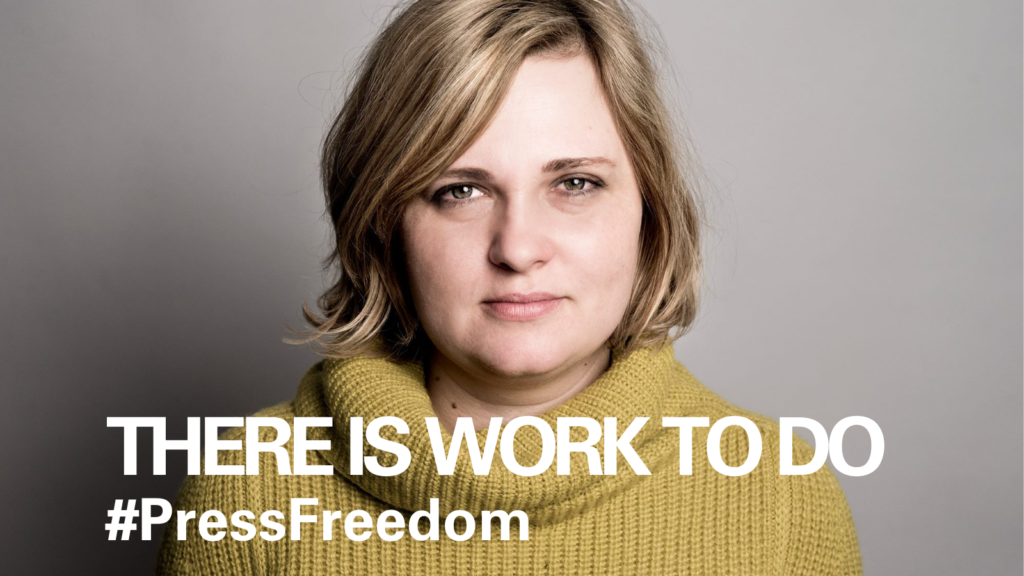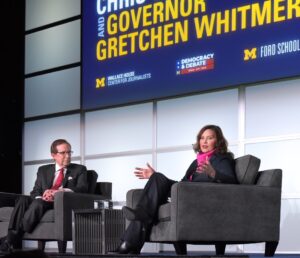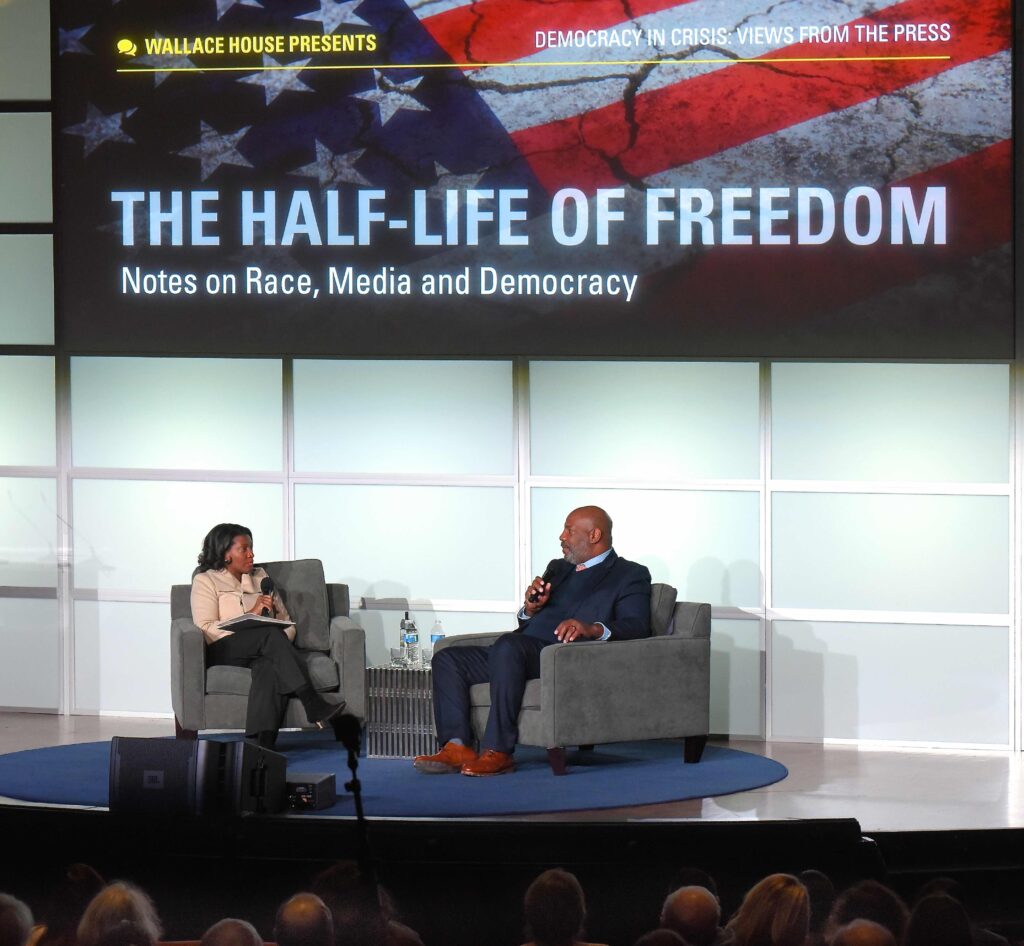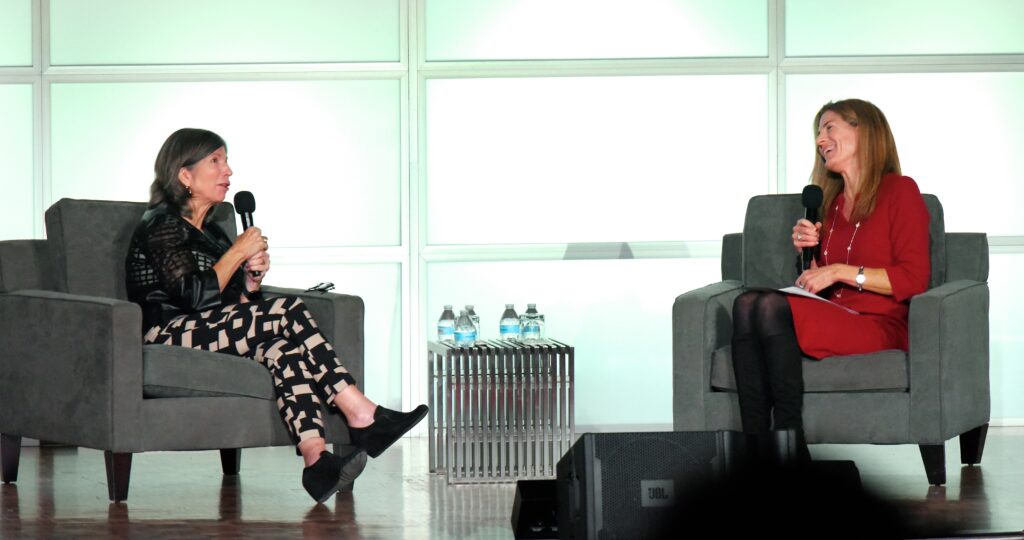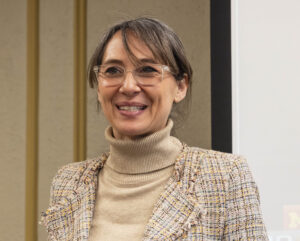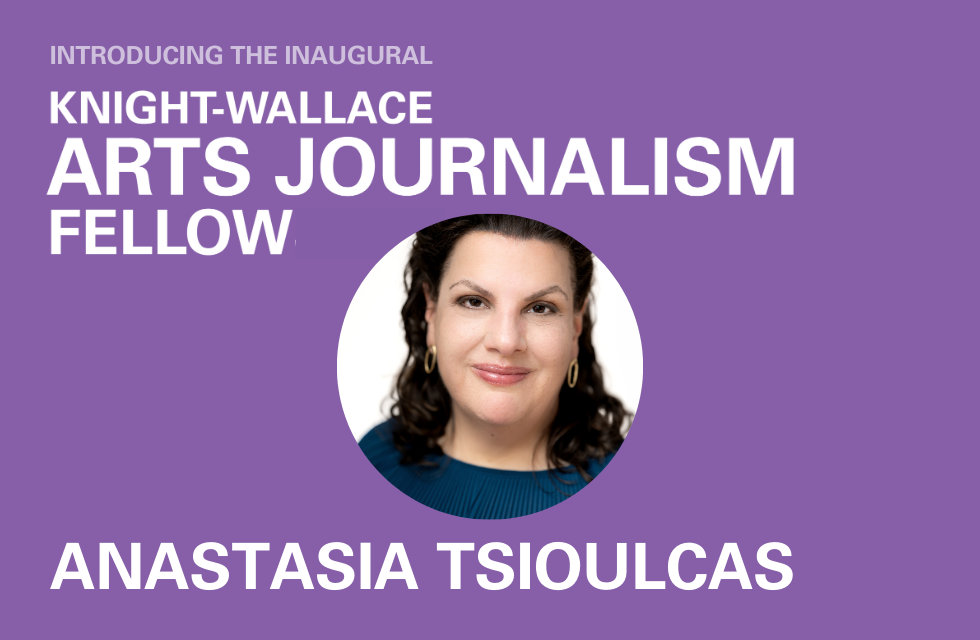
ANN ARBOR—The University of Michigan Arts Initiative and the Wallace House Center for Journalists are pleased to announce Anastasia Tsioulcas, Culture Correspondent for NPR, as the inaugural Knight-Wallace Arts Journalism Fellow.
This fellowship marks the latest collaborative effort from the Arts Initiative to expand access to the arts on campus and strengthen the arts ecosystem nationally and across southeast Michigan. As a Knight-Wallace Arts Journalism Fellow, Tsioulcas will actively engage in the Arts Initiative, collaborating with artists-in-residents and arts organizations to enhance learning, arts research and the campus experience for students.
Drawing from her extensive journalism background, Tsioulcas will lead a series of student workshops for budding arts journalists. Modeled after sessions she led at Stanford University, the workshops will help students develop their skills in arts journalism and explore their creative potential. Additionally, Tsioulcas will mentor students in crafting compelling short-form journalism for social media and other digital platforms.
“The broad, enthusiastic response to this new partnership between U-M’s Wallace House and the Arts Initiative has demonstrated the vital importance of supporting arts journalism in this moment,” said Mark Clague, Interim Executive Director of the Arts Initiative. “Welcoming Anastasia as our first fellow opens up a host of opportunities to connect our campus to the community and to inspire our students to engage in arts criticism that addresses urgent cultural issues and social themes.”
Anastasia Tsioulcas is a correspondent on NPR’s Culture desk and classical music critic at The New York Times, the first journalist to hold such a dual role. Her reporting focuses on music at the intersection of culture, politics, economics and identity. Previously at NPR Music, she curated episodes of the Tiny Desk concert series, hosted live events, and created video shorts. Tsioulcas has reported globally from Africa, Asia and Europe. Prior to NPR, she was a reporter and critic for such publications as Gramophone and Billboard. A trained classical musician, she holds a B.A. in comparative religion from Barnard College, Columbia University.
As a Knight-Wallace Arts Journalism Fellow, Tsioulcas will delve into Detroit’s classical music scene, researching the effectiveness and outcomes of efforts to diversify both performers and audiences. Since 2020, nationwide, classical music institutions and presenters have reshaped their offerings to appeal to more diverse audiences. Drawing inspiration from the university’s own innovative programming, Tsioulcas will track initiatives and performances in Detroit and the surrounding region and examine how well these programs tackle systemic challenges and opportunities for growth.
“I’m thrilled and honored to have been selected for this fellowship,” Tsioulcas said. “It’s a unique opportunity to look holistically at the evolution of classical music programming, and to share what I learn with students, NPR’s audiences, and the broader public.”
Tsioulcas will be a member of the 51st Knight-Wallace Fellowship class and participate in bi-weekly Wallace House seminars, cohort-based workshops and training, and international travel to bring context to the economic and social forces shaping news coverage.
“This partnership with the Arts Initiative comes at a critical time when staff positions for arts reporters have all but disappeared in American journalism. We’re making an intentional statement about the importance of arts coverage in a healthy journalism ecosystem,” said Lynette Clemetson, director of Wallace House Center for Journalists. “Reporting that fosters engagement with artistic expression is as vital to society as reporting on any other pillars of our communities or public institutions.”
The Knight-Wallace Fellowships offer accomplished journalists access to the rich resources at U-M to pursue ambitious projects. From tackling pressing newsroom challenges, to digging into research for a long-term reporting project or developing a journalism venture, Fellows undertake a range of projects aimed at advancing the profession and fostering an informed and engaged public. The full class of 2024-25 Knight-Wallace Fellows will be announced in May.
Tsioulcas says she is eager to become part of the U-M community, to immerse herself in the vibrant arts ecosystem at the University of Michigan and to share her insights with the next generation of arts journalists.
Read the original announcement about this inaugural fellowship.
About the Wallace House Center for Journalists
Wallace House Center for Journalists at the University of Michigan is committed to fostering excellence in journalism. We are home to programs that recognize, sustain and elevate the careers of journalists to address the challenges of journalism today, foster civic engagement and uphold the role of a free press in a democratic society. We believe in the fundamental mission of journalism to document, interpret, analyze and investigate the forces shaping society.
About the Arts Initiative
The U-M Arts Initiative seeks to illuminate and expand human connections, inspire collaborative creativity, and build a more just and equitable world through the arts. It is a University-wide endeavor to make the arts central to U-M’s identity and mission.

